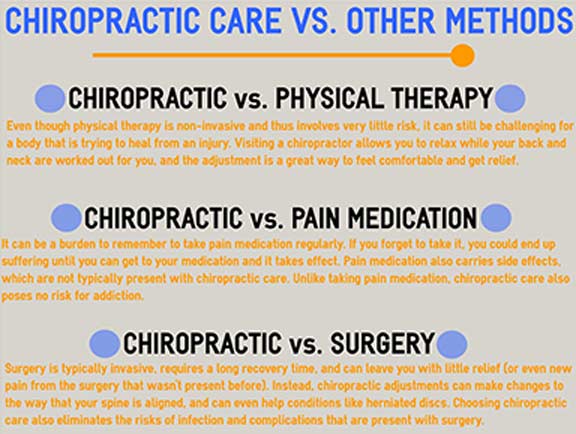Explore The Deeper Ramifications Of Your Pain In The Back And Take Control Of Your Health And Wellness
Explore The Deeper Ramifications Of Your Pain In The Back And Take Control Of Your Health And Wellness
Blog Article
Post Writer-Keller Terkildsen
If you're experiencing neck and back pain, your body might be attempting to inform you something greater than just pain. The method your back feels can provide useful clues regarding your general wellness. Comprehending the details type of discomfort you're feeling and any type of accompanying signs and symptoms is key to untangling the mystery behind your pain. Let' acupuncture out the common conditions and symptoms related to different sorts of pain in the back to shed light on what your body might be signaling.
Types of Neck And Back Pain
When it concerns neck and back pain, there are numerous kinds that you might experience. One usual type is muscle mass pain, often brought on by overuse, stress, or injury to the muscle mass and tendons sustaining the spinal column. This kind of discomfort can vary from mild pain to serious and devastating pain.
One more kind is nerve discomfort, which can result from problems like herniated discs or sciatica. Nerve pain often provides as a sharp, shooting feeling that emits down the leg.
Joint pain in the back can stem from issues like arthritis or sacroiliac joint disorder. This type of discomfort is generally felt in the lower back and can be intensified by specific motions.
In addition, pain in the back can be related to structural problems such as spine stenosis or vertebral cracks. Recognizing the kind of neck and back pain you're experiencing is crucial in determining the suitable therapy and monitoring strategies.
Common Symptoms to Watch For
Moving past the different types of neck and back pain, it is very important to identify the usual signs and symptoms that can signal underlying concerns.
look at more info and back pain that worsens with activity or at night could suggest an extra significant problem. Pins and needles or prickling in the legs or feet, especially when accompanied by weakness, may indicate a nerve-related issue. If you experience sudden weight loss along with pain in the back, it could be an indicator of a more systemic condition.
Take note of any kind of changes in bladder or digestive tract function, as this could be connected to spine compression. Fever, chills, or evening sweats combined with back pain may indicate an infection. Keep an eye out for pain that radiates down one or both legs, potentially indicative of sciatic nerve pain.
Health And Wellness Issues Linked to Back Pain
If you experience back pain, it's essential to understand the potential health problems connected to this pain. Neck and back pain can be a signs and symptom of different underlying concerns, including muscle mass strains, herniated discs, osteoarthritis, spinal constriction, and also conditions like kidney rocks or infections.
Muscular tissue strains are common and frequently result from raising heavy items or abrupt motions.
Herniated discs happen when the soft tissue between vertebrae protrudes, creating nerve inflammation.
nyc back pain , a degenerative joint condition, can cause neck and back pain as cartilage material wears down.
Back constriction, the narrowing of the back canal, can put pressure on nerves.
Kidney stones might create intense back pain if they move right into the urinary tract.
Infections like spinal osteomyelitis can also materialize as back pain. Understanding these potential wellness problems can aid you seek proper medical care and administration for your pain in the back.
Verdict
So, following time your back hurts, pay attention to the type of discomfort and coming with signs and symptoms. Maybe a signal from your body regarding underlying health conditions like muscle strain, nerve concerns, joint issues, and even architectural concerns. By acknowledging these indicators, you can take positive actions to resolve the source of your neck and back pain and boost your overall health and wellness and well-being.
